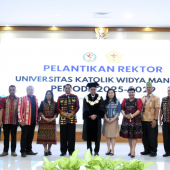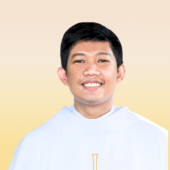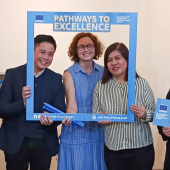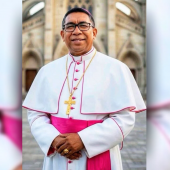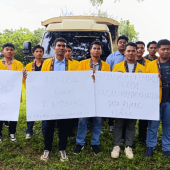“Ethics Still Matters”, says Catholic University on the its proposed removal from the College Curriculum
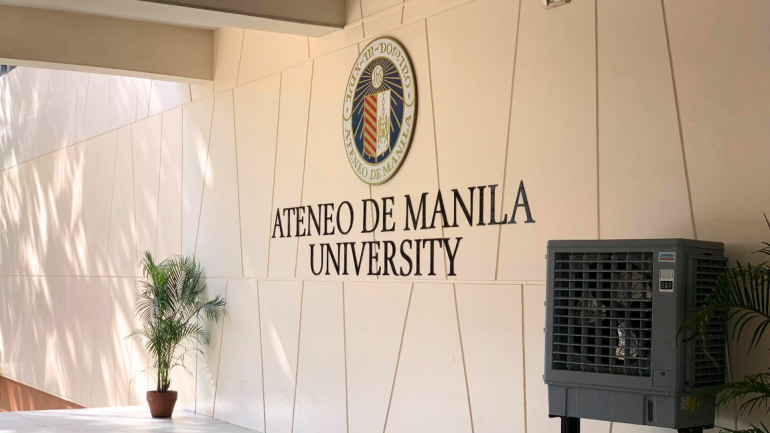
On May 31, 2025, 20 faculty members of the Jesuit-run Ateneo de Manila University Department of Philosophy issued a statement about the recently proposed removal of ethics from the college curriculum, saying, Ethics Still Matters.
“On May 28, officials of the Department of Education (DepEd), led by Assistant Secretary Janir Datukan, proposed to the House Committee on Basic Education and Culture that ethics, along with some other General Education (GE) courses, could be removed from the college curriculum,” said the statement.
Proponents believe the content and skills taught in these subjects are already covered in other courses in the Basic Education Curriculum (BEC).
This proposal, which the DepEd is submitting to the Commission on Higher Education (CHED), aims to shorten college education by one semester. The faculty members said they recognize the goal “to ease the financial burden on families and to promote more focused learning by reducing the number of courses.”
“But various professional organizations—most notably the Union of Societies and Associations of Philosophy in the Philippines (USAPP)—as well as philosophy departments across the country, have voiced strong opposition,” they said.
“These groups argue that the proposal reflects a fundamental misunderstanding of the distinctive skills that ethics develops and warn of the long-term harm that removing such a course may bring to students and society as a whole,” said the statement.
“Philosophy, both as a discipline and a way of thinking, trains individuals to inquire into the deeper causes and conditions that shape our world. It opens the path to asking if the world functions in a way that best serves our development and flourishing as individuals, which enables us to further discern what our role might be in shaping the world—not merely as it is, but as it could be,” it said.
“Today, our people face the compounded crises of poverty, climate change, and an economic system that often denies them not only meaningful work but even their most basic needs, while algorithm-driven platforms increasingly shape opinions and decisions, deepening societal divisions in ways we have never seen before,” it said.
“If we are to pursue genuine development—where dignity, equity, and sustainability replace exploitation and poverty—we must cultivate a generation capable of ethical and philosophical reflection. We should not treat ethics as a luxury or sacrifice it for employability. It is a necessity in a world increasingly defined by complexity, uncertainty, and moral ambiguity,” it said.
The faculty members called on DepEd and CHED “to approach the proposal with greater discernment and a more profound understanding of the kinds of thinking and skills necessary to build a sustainable future—one in which human well-being is measured not only by economic output but by the flourishing of persons and communities.”
“The revised general education curriculum has yet to undergo a thorough assessment of its effectiveness. How can we proceed with further revisions without a thorough evaluation? We urge CHED to proceed only based on expert knowledge and genuine consultation,” it said.
The group commended the philosophical community in the Philippines for its swift and thoughtful response to this issue.
“We also call on our broader community to remain vigilant and to demand that policymaking in education be grounded in meaningful dialogue, transparent consultation, and rigorous study. As a department, we express our readiness to contribute to these efforts and welcome opportunities to collaborate with CHED, DepEd, and other stakeholders in strengthening ethics education in the Philippines,” it said.
In a world that is changing fast, the group said caution is important not to oversimplify what education should do.
“Rather than removing ethics—and with it, the opportunity to cultivate discernment, moral imagination, and critical thinking—we should strengthen it. If we want to prepare young Filipinos not only to respond to the challenges of the future but also to take part in shaping them, ethics must remain a vital part of their formation,” it said.
Radio Veritas Asia (RVA), a media platform of the Catholic Church, aims to share Christ. RVA started in 1969 as a continental Catholic radio station to serve Asian countries in their respective local language, thus earning the tag “the Voice of Asian Christianity.” Responding to the emerging context, RVA embraced media platforms to connect with the global Asian audience via its 21 language websites and various social media platforms.









